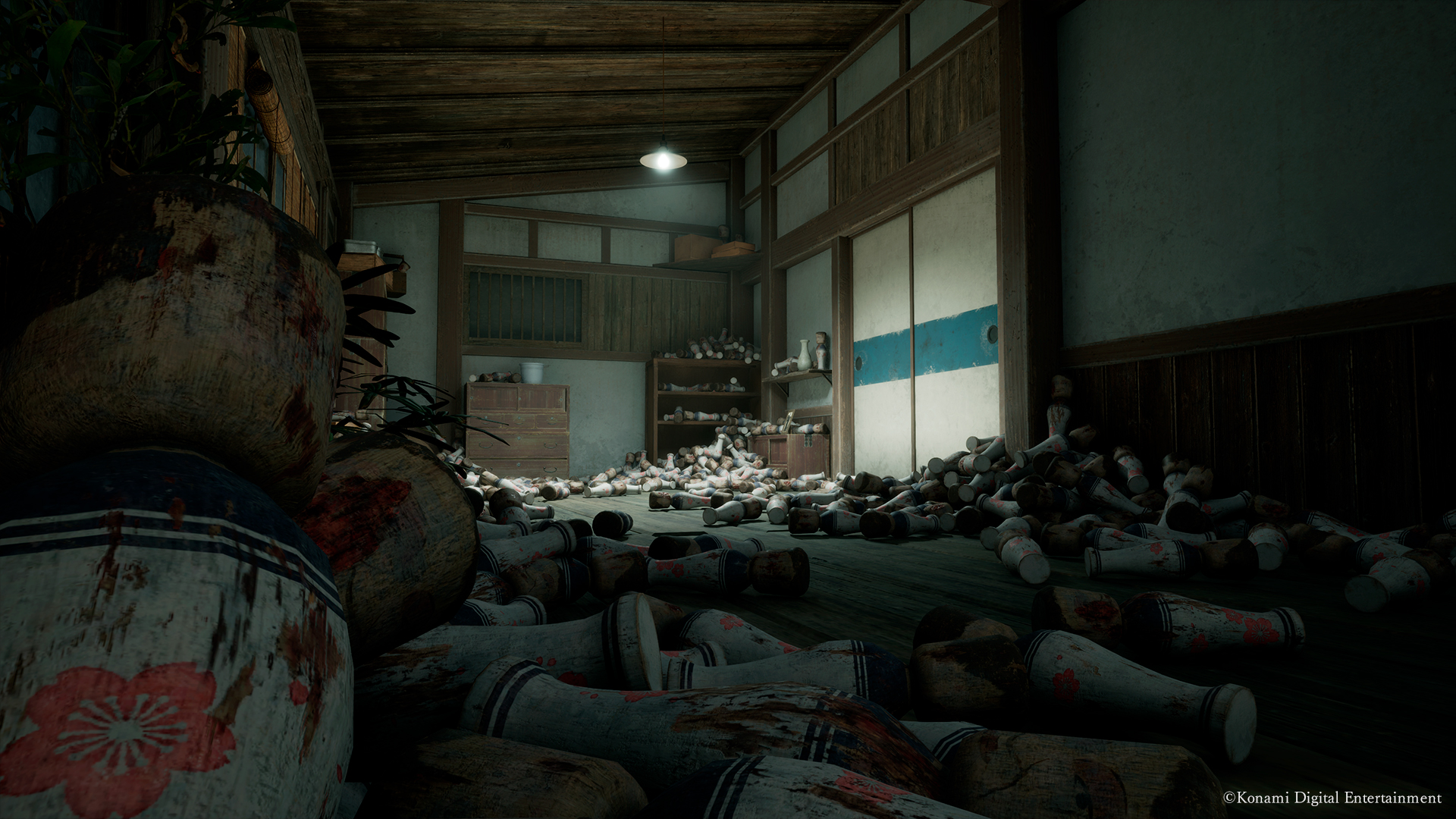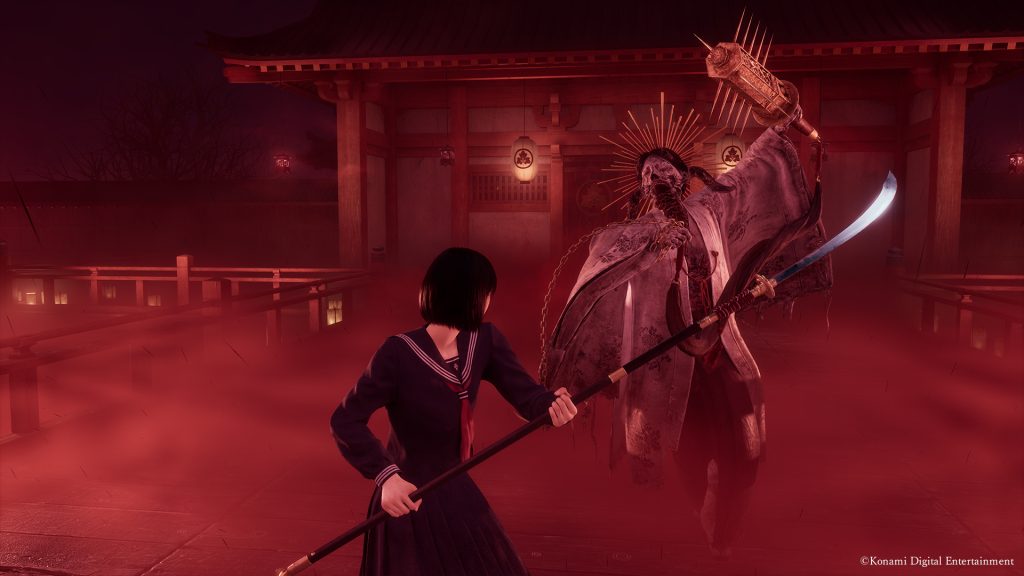
Okay, so I just heard the news – *Silent Hill f* is doing *really* well! Apparently, it’s already sold over a million copies worldwide, both physically and digitally. What’s even crazier is that it hit that milestone in just *one day*! Konami said it’s actually selling faster than the *Silent Hill 2* remake, which was already doing great but took almost a week to reach the same number. Pretty wild, huh?
Considering that Konami’s other major game this year, *Metal Gear Solid Delta: Snake Eater*, sold over a million copies on its first day, the impressive performance of *Silent Hill f* really stands out. *Delta: Snake Eater* benefited from years of anticipation and was a remake of a beloved classic, and it was primarily developed by Konami themselves (with some help from Virtuos).
Compared to other games in the series, *Silent Hill f* is quite different and takes more risks. While it carries the *Silent Hill* name, it tells a brand new story that isn’t connected to any of the previous games. For the first time in a main *Silent Hill* title, the game takes place outside of the iconic town, instead being set in 1960s Japan.
The game is being developed by NeoBards Entertainment, the studio known for multiplayer games like *Resident Evil Re:Verse* and *Resident Evil Resistance*. While those titles weren’t well-received and were quickly discontinued, NeoBards did a good job with the *Mega Man Battle Network Legacy Collection*, so they have some experience. Creating a multiplayer mode for *Resident Evil* is challenging, especially one that differs from the *Outbreak* style.
The main issue was that the development team hadn’t really led a project of this scale before. Even Bloober Team, who had worked on horror games previously (though with varying results), had more experience. The announcement that the game would include features like a stamina bar, melee combat, and character stats – elements commonly found in ‘Souls-like’ games – caused a strong negative reaction. This backlash continued even after the developers explained that these features weren’t strictly ‘Souls-like’ in design.
After the game was released, reviews began to come in, and many critics actually liked it. It currently has a score of 86 on Metacritic, based on 84 reviews, which is a strong result. On Steam, it reached a peak of 22,621 players right after launch – a particularly impressive number, considering the *Silent Hill 2* remake only reached 23,676 players total. While some players have reported performance issues, leading to an overall “Mostly Positive” rating, and the combat isn’t universally loved (even critics agree on that), the initial response has been largely favorable.
Despite being a newer entry, *Silent Hill f* has been remarkably well-received, earning high ratings and gaining recognition in a year packed with excellent games. This raises the question: what makes it so special?
While it didn’t get as much hype as the *Silent Hill 2* remake or *Metal Gear Solid Delta: Snake Eater*, the game still benefited from the positive buzz surrounding the *Silent Hill* remake. This shows how popular the *Silent Hill* series still is, even after being quiet for years. Importantly, new players can enjoy this game without needing to know much about the franchise beforehand. The fact that NeoBards created an entirely new story made it particularly appealing, especially for those who liked the *Silent Hill* remake.

With *Silent Hill f*, Konami is clearly pushing boundaries and trying new things in the horror genre. This isn’t just about the gameplay; they’ve brought in fresh talent like writer Ryukishi07 and monster designer kera. While Akira Yamaoka is still composing the music, the game also features contributions from lesser-known artists such as Kensuke Inage, dai, and xaki – though dai and xaki have previously collaborated with Ryukishi07 on titles like *Higurashi* and *Umineko*.
This new take on *Silent Hill* feels both strikingly original and deeply rooted in what makes the series so frightening. The monsters inhabiting both the real world and the Otherworld are genuinely unlike anything seen in the horror genre. A key reason for the creator’s acclaim is their ability to blend the grotesque, the beautiful, and the unsettlingly ambiguous. The designs are impressive, but also hint at disturbing layers beneath the surface, making them hard to look away from.
I’m a big fan of Ryukishi07, and a lot of people are! His work, like *Higurashi When They Cry*, is really famous all over the world, and many consider *Umineko* to be his best. Honestly, the biggest buzz around the announcement of *Silent Hill f* is that he’s working on it. I think a lot of us are just incredibly curious to see what dark and twisted story he comes up with next – and knowing him, it’s going to be *really* messed up!
The game effectively creates a sense of dread and helplessness, which is central to its horror. This feeling constantly lingers, enhanced by the music and story. A major source of fear is the mystery surrounding the events, and uncovering the truth about places like Ebisugaoka and characters like Fox Mask only makes things worse. The game’s core idea – finding beauty within terror and terror within beauty – perfectly reflects Hinako’s journey, and this theme is consistently reinforced by the writing, visuals, and sound design.
I really appreciate how the game handles violent scenes. *Silent Hill f* doesn’t shy away from disturbing content, but it often chooses to *suggest* rather than *show* everything. We often hear what’s happening, or see it reflected in the character Hinako’s reactions. This indirect approach is actually more frightening – it lets your imagination fill in the gaps and create a truly terrifying experience. It’s a classic technique, and it’s very effective here.

Looking at the history of popular Japanese psychological horror game series, it’s surprising how few have gotten sequels. *Siren* hasn’t had a new game in years, though Sony occasionally renews the rights to acknowledge its anniversary. *Fatal Frame* has received updated versions, and will finally get a full remake with next year’s *Fatal Frame 2: Crimson Butterfly*. While *Resident Evil* is still doing well, its recent games have leaned more towards action, though *Village* did include some genuinely scary psychological moments.
It’s interesting to note that some of the most talked-about recent psychological horror games from Japan come from smaller studios like Chilla’s Art (with games like *The Bathhouse* and *The Closing Shift*) and Kotake Create (*Exit 8* and *Platform 8*). While Japanese horror hasn’t consistently hit the mark since its peak with titles like *Ringu* and *Ju-on*, the appeal of Japanese folklore, spirits, and feeling completely powerless against unexplained supernatural forces remains strong. It might not be as widely popular as it once was, but it’s still captivating.
Playing *Silent Hill f* really took me back to the golden age of Japanese horror – that feeling of being utterly terrified but completely hooked. While the way it *plays* feels pretty modern, the atmosphere is pure classic *Silent Hill*. Honestly, Konami’s been trying some new things with the series, which is cool, but this is exactly what we’ve been craving from a big-budget horror game. It just proves they should *never* have stepped away from this kind of experience in the first place.
Just so you know, everything written here is my own opinion – it’s how I see things as a fan, and doesn’t necessarily reflect what GamingBolt as a site thinks. I’m sharing my perspective, not speaking for them!
Read More
- Best Controller Settings for ARC Raiders
- DCU Nightwing Contender Addresses Casting Rumors & Reveals His Other Dream DC Role [Exclusive]
- 7 Home Alone Moments That Still Make No Sense (And #2 Is a Plot Hole)
- Ashes of Creation Rogue Guide for Beginners
- Stephen Colbert Jokes This Could Be Next Job After Late Show Canceled
- 10 X-Men Batman Could Beat (Ranked By How Hard It’d Be)
- Is XRP ETF the New Stock Market Rockstar? Find Out Why Everyone’s Obsessed!
- 10 Most Brutal Acts Of Revenge In Marvel Comics History
- DC K.O.: Superman vs Captain Atom #1 Uses a Fight as Character Study (Review)
- Stephen King’s Mister Yummy Short Story Becoming A Movie
2025-10-06 16:42